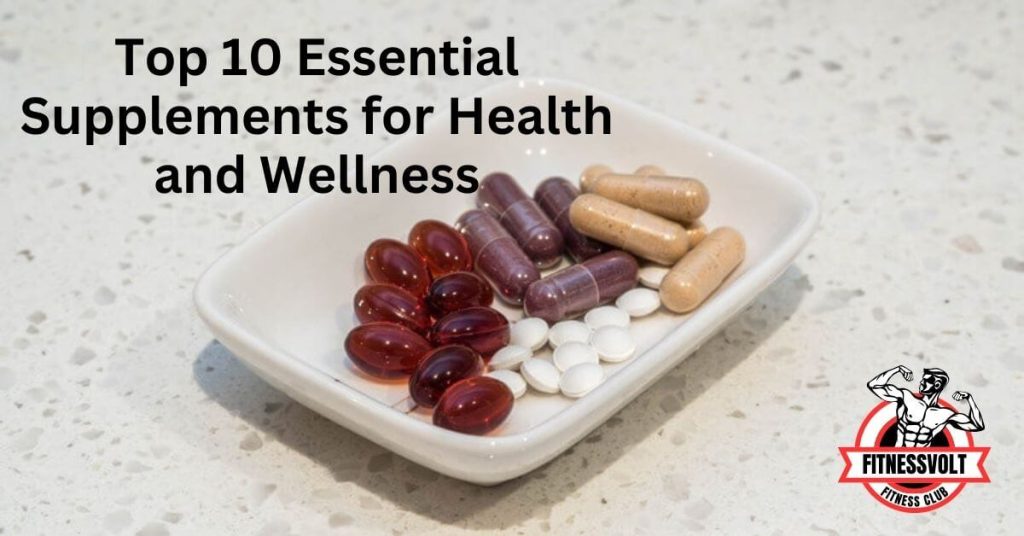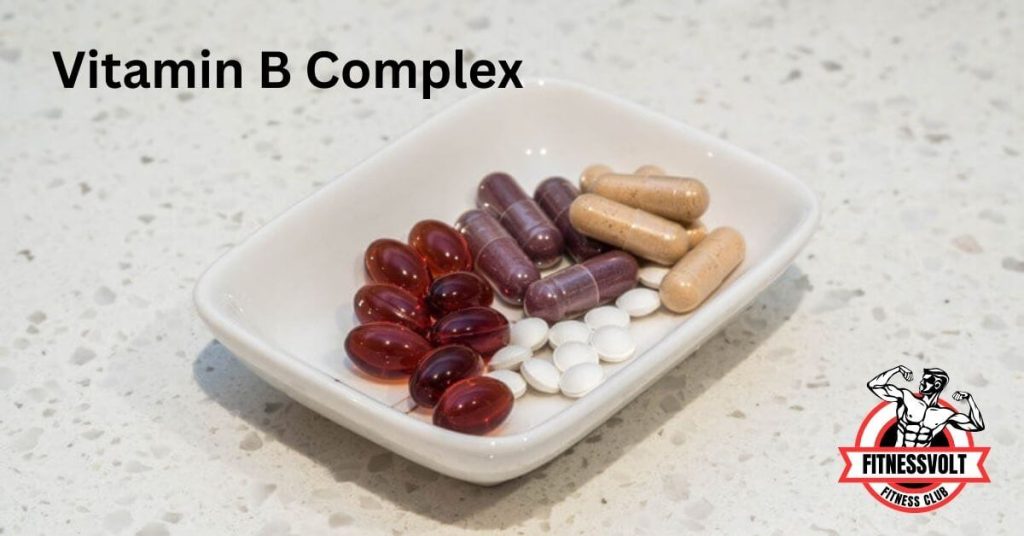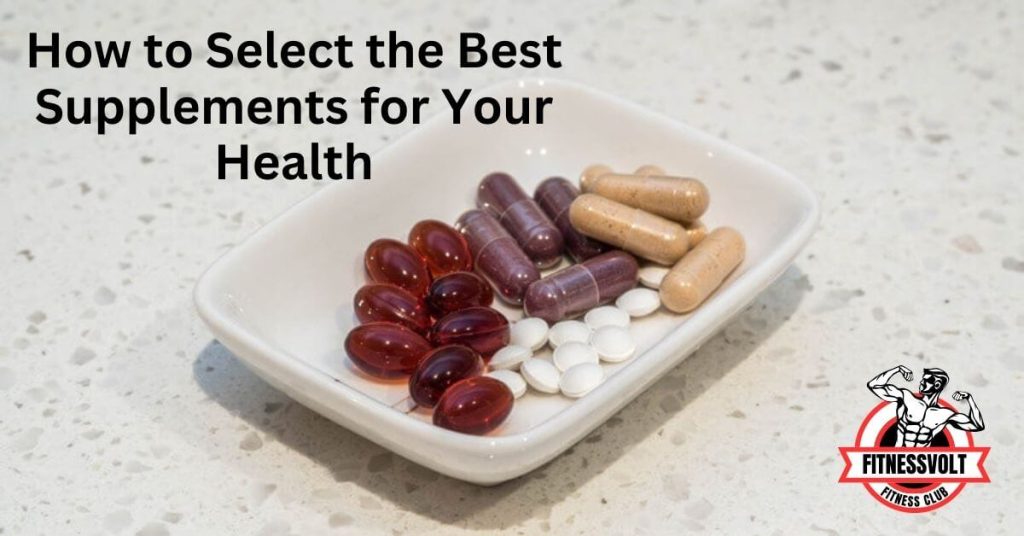Maintaining health and well-being in this fast-paced world is difficult. Even despite our best efforts to consume a well-… Source This is where improvements come into play.
Although no replacement for good nutrition, supplements can offer nutritional insurance and promote general health in a convenient way. In this article, let us look at the top 10 critical supplements that may benefit your health and well-being.

Understanding the Benefits of Taking Supplements for Good Health
Why Supplements Are Important
Sometimes, even with best of planning with diet it gets difficult to fulfill all the nutritional requirements. Due to the use of harmful modern farming practices, they pull out much more from their soil-salary than they receive, leaving only a few nutrients for them and introducing such fruits and vegetables with so low nutritional values. A majority of diets consists mostly of foods lacking in key nutrients due to partial processing.
Moreover, age, stress, and physical activity can also escalate the body’s dietary necessities. Supplements are a convenient way to fill in the gap between your nutritional requirements and what you are getting from your diet for maintenance for all the biochemical functions of your body.
Are Supplements Necessary for Everyone?
While certainly not for everyone, almost everyone can benefit in some form from working them into their regimen. The answer to that is highly variable and depends on your diet, lifestyle, age and health status. If one were to use this diet, they might need to take a supplement such as B12 since there are very few plant-based sources of B12 (and the ones that do contain it contain so little). This article looks at the benefits of calcium and vitamin D for bone health in seniors. And as always, it is very important that you discuss with your health provider before beginning any new supplement collection.
The Top 10 Essential Supplements for Optimal Health
1. Multivitamins
The most common supplement is multivitamins — and with good reason. They have the perfect mix of essential vitamins and minerals, which would cover almost all aspects big or small. staking a daily multivitamin can help fill in any gaps, and guarantee that —at the very least— we’re getting the recommended daily amounts of essential nutrients like vitamins A, C, D, E and B vitamins, as well as minerals such as zinc selenium and magnesium.
2. Vitamin D
VITAMIN D Aiding calcium absorption, this nutrient is necessary for healthy bones and teeth. It has a mood stabilization and an immune-stimulant effect as well There are many things that can block our bodies from making Vitamin D from the sun, such as geography, time of day, skin type and sunscreen. In particular, supplementary vitamin D is important during the wi
3. Omega-3 Fatty Acids (Fish Oil)
Omega-3 unsaturated fats, which are found in fish oil, are fundamental fats that the body can’t create all alone. They are essential for heart health, provides anti-inflammatory effects and supports brain function. Lower risk of chronic disease like heart diseases and arthritis due to omega 3s. For those not a fan of fatty fish, they can benefit from taking them in supplement form. An alternative ingredient in the form of algae oil is also offered for vegetarians.
4. Probiotics
Probiotics are important bacteria which boost the immunity, and support a healthy gut microbiome. A healthy microbiome helps us digest and absorb nutrients from food, alongside various other roles in supporting a strong immune system. Takeway Probiotics can also help with conditions such as irritable bowel syndrome (IBS), and the general health of your immune system. Select a probiotic that has more than one strain and recommended CFU count for best results.
5. Magnesium
Magnesium is a basic mineral associated with more than 300 biochemical responses in the body. It helps in muscle and nerve activities, BP regulation, and is vital in energy production process. In addition, it also contributes to good quality sleep and stress reduction. Unfortunately, many people are deficient in magnesium, thus supplementing becomes necessary. There are different types of magnesium wine can take include magnesium citrate and magnesium glycinate, which are highly absorbed.
6. Vitamin B Complex

A B complex vitamin is made up of several B vitamins, which include B1 (thiamine), B2 (riboflavin), B3 (niacin), B6, B12, and folate. It is essential in energy production, cell metabolism, and proper functioning of the brain. Supplementing with a B complex vitamin is important as it includes all the critical B vitamins in appropriate required amounts. This is especially beneficial for people with a busy lifestyle as they involve energy utilization and clarity of the brain.
7. Vitamin C
Vitamin c is a powerful antioxidant that is responsible for the proper functioning of the immune system, the production of collagen, and skin health. In various cell activities, it helps protect cells from oxidative damage, and in the healing process, it helps cells proliferate to fill the empty space. Although it is readily available in most of the fruits and vegetables, one may take supplements to reach sufficiency. Buffered vitamin C would be beneficial for people with sensitive stomachs.
8. Calcium
Most individuals know the vitality of calcium in the building and maintenance of strong teeth and weak bones. This nutrient is mostly emphasized for women, who are at a high risk of osteoporosis as age advances. One gets calcium from most of the dairy products he or she uses, but one can supplement when not enough. Calcium should also be taken with vitamin D for a proper uptaking process in the body.
9. Zinc
Zinc is a trace mineral that plays many important roles in your body, such as supporting immune function, wound healing and protein synthesis. It is also essential for taste and smell. A reduction of the immune function, due to low zinc status may be corrected by supplementation which is all-important especially in seasons like during the cold and flu season. Zinc supplements are available in the form of zinc gluconate and zinc picolinate known for bioavailability.
10. Fiber Supplements
Dietary fiber is important for digestive health, helping to prevent constipation and promoting regular healthy bowel movements. Similarly, it helps in maintaining weight as they give a sense of satiety. Ideally, you should get your fiber from whole foods like fruits, vegetables, and whole grains — but for many people, that’s hard to do. Calories: Fiber supplements like psyllium or inulin (this can bridge that gap!)
How to Select the Best Supplements for Your Health

Consider Your Individual Needs
When you choose the Antler Velvet supplement, be sure to consider your own health condition so that it can indeed meet your specific fitness goals. If you have trouble with your energy the B complex is for you as an example. If bone health is your focus, calcium and vitamin D should be priorities. By finding a way to make the supplement regimen unique to you, it can also benefit from taking them.
Quality Matters
All supplements are not equal Never underestimate the effectiveness of choosing supplements from fancy and reliable brands. Refrain from supplements filled with fart ingredients and instead, use a third-party tested supplement. Knowing labels and certifications such as GMP (Good Manufacturing Practices) certification, Nsf National sanitation foundation can help you to make the right decision.
Potential Risks and Considerations
The Risk of Over-Supplementation
Supplements are helpful, but overcompensation can be very dangerous. One example is that too much vitamin D can make it difficult for the kidneys to get rid of calcium in the blood. To prevent the risks of over-supplementation, it’s crucial to follow the recommended dosages and consult with a healthcare provider.
Interactions with Medications
While some supplements can interact with medications, diminishing their efficacy and resulting in dangerous side effects. For example, vitamin K can affect blood thinners while calcium diminishes the absorption of some antibiotics. If you are taking prescription medications, always consult with your healthcare provider before supplementing.
Conclusion
Supplements can be an integral part of improving your health, especially if there are deficiencies in the diet or surmounting nutritional requirements. But it is important to choose appropriate supplements that enhance your performance and make sure you get high-quality products.Remember, improvements should supplement a good dieting plan and not substitute it. Speak with a healthcare provider before beginning any new supplement routine to help make certain it is actually safe and appropriate for everyone..


